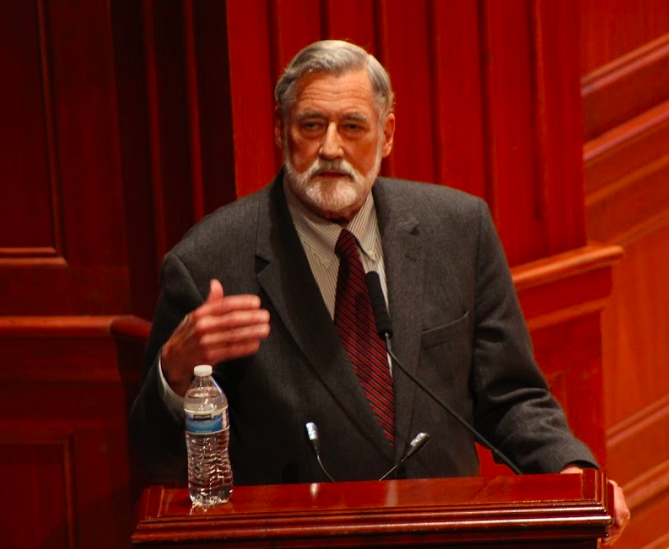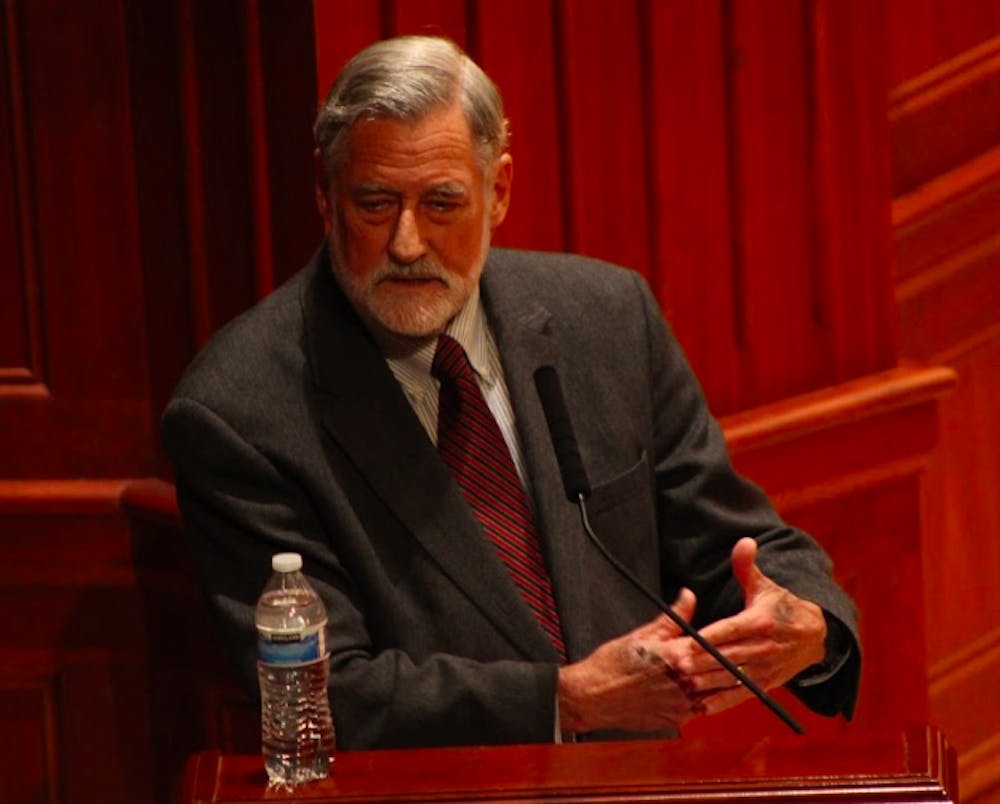By Victoria Giardina
Columnist
It was a “beautiful day in the neighborhood” for College students on Nov. 4, as they made their way to Mayo Concert Hall to see a presentation honoring the late Fred Rogers — better known as the one and only “Mister Rogers.”
Rogers created “Mister Rogers’ Neighborhood,” a PBS television show in which children across the nation wished to knock on his door and see his thoughtful and caring personality.

Journalist and author Maxwell King, a former editor at The Philadelphia Inquirer who worked directly with the television icon in his later years, led the presentation and is credited with writing the first full-life biography of Rogers, titled “The Good Neighbor: The Life and Work of Fred Rogers.”
King also worked directly with Rogers to spearhead the Fred Rogers Center for Early Learning and Children’s Media in Latrobe, Penn.
“He wasn’t just a kiddie TV host,” King said, “He was a strategist who had a passion for kids.”
King discussed a 1969 Senate hearing where Rogers challenged cuts for public broadcasting. With only one year of “Mister Rogers’ Neighborhood” first airing in 1968, King described his speech as a powerful, yet inspiring proclamation of his love for creative expression.
“What was compelling about his hearing wasn’t the analytics of public television, but his authentic, passionate narrative that is uplifting,” King said. “He made it about children and he made it about their mental health.”
Rogers’ brightly-colored sweaters weren’t the only trademark of his Daytime Emmy award-winning show — they symbolized a bright light to addressing common experiences children may be going through, such as friendship conflicts and divorce.
“His message for divorce enforced that there are ways to put it back together,” King said. “Maybe it can’t be fixed, but it can come together constructively.”
Divorce was one of many difficult topics that Rogers mastered the art of communicating in his neighborhood. He was passionate about sharing real and raw experiences with children across a television screen.
Rogers aired an episode honing in on a child in a wheelchair in an effort to relate to all children, despite their differences. His goal was to connect with young people in a way that was unprecedented in public television, as he was surprised by the lack of diversity in children’s programming.
“He was appalled,” King said.
King expresses that what Rogers saw on television needed serious improvement and led Rogers to immerse himself at NBC for an unpaid internship — a three-year experience that shaped his career.
“Fred became well-versed in connecting with the experiences of others and that stems deeply from his religious upbringing,” King said.
King described Rogers’ values as his greatest asset. Before Rogers was ready to welcome a nationwide audience to his morning neighborhood gatherings, he had an intentional morning routine — reading his Bible each morning and praying.
“He didn’t pray for his success and he didn’t pray for something good to happen to him,” King told. “He prayed that he could be as good and as kind and as thoughtful to everyone he met that day.”
At a panel after the talk, called “How Do We Make Goodness Attractive,” King discussed the struggles of living in a digital age and the importance of living a full life with genuine purpose, just as the way he said that Rogers did.
“Rogers knew about television and media to know that the goal of everything he did was authenticity,” King said. “He truly inspired generations of individuals.”







